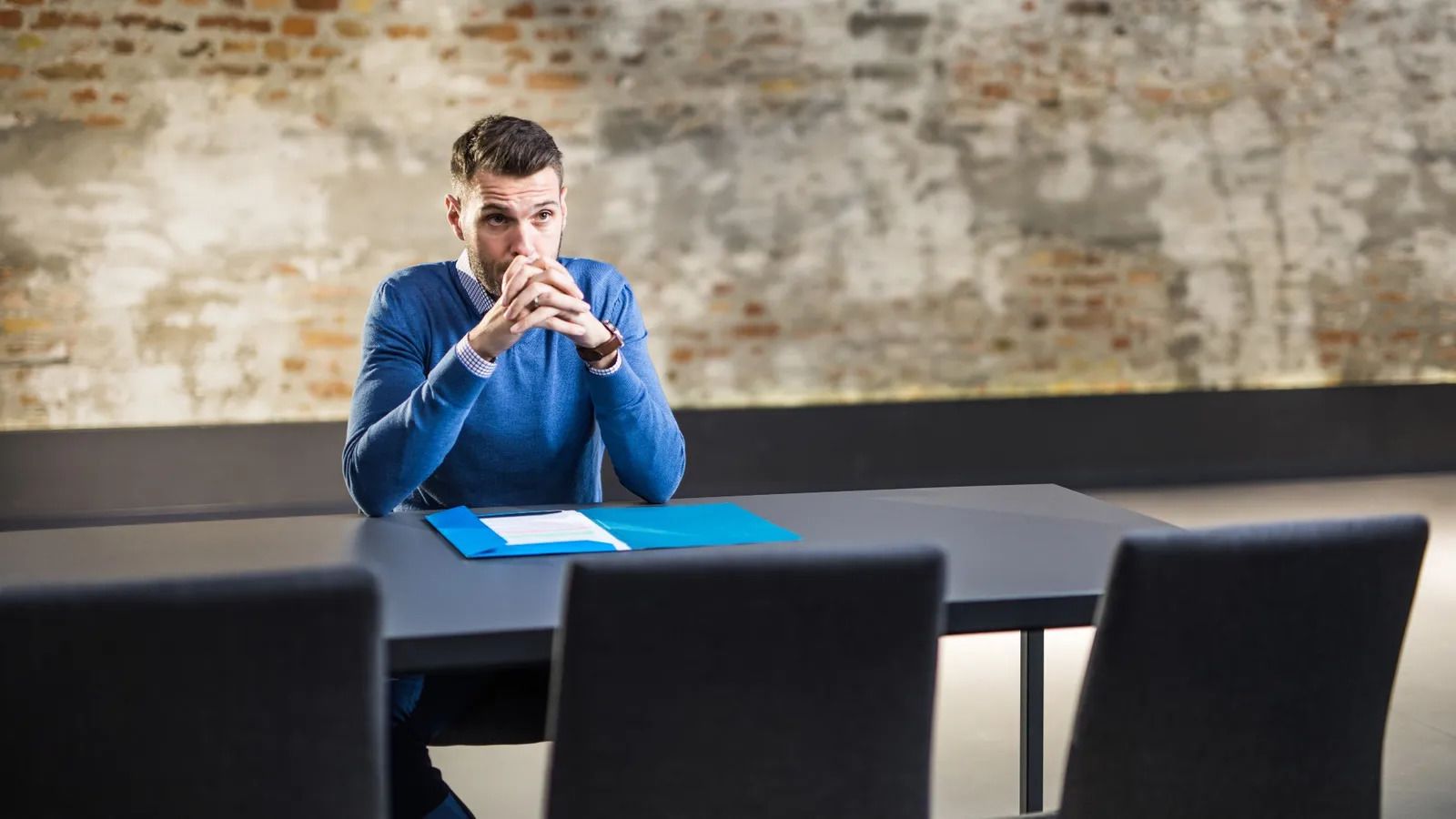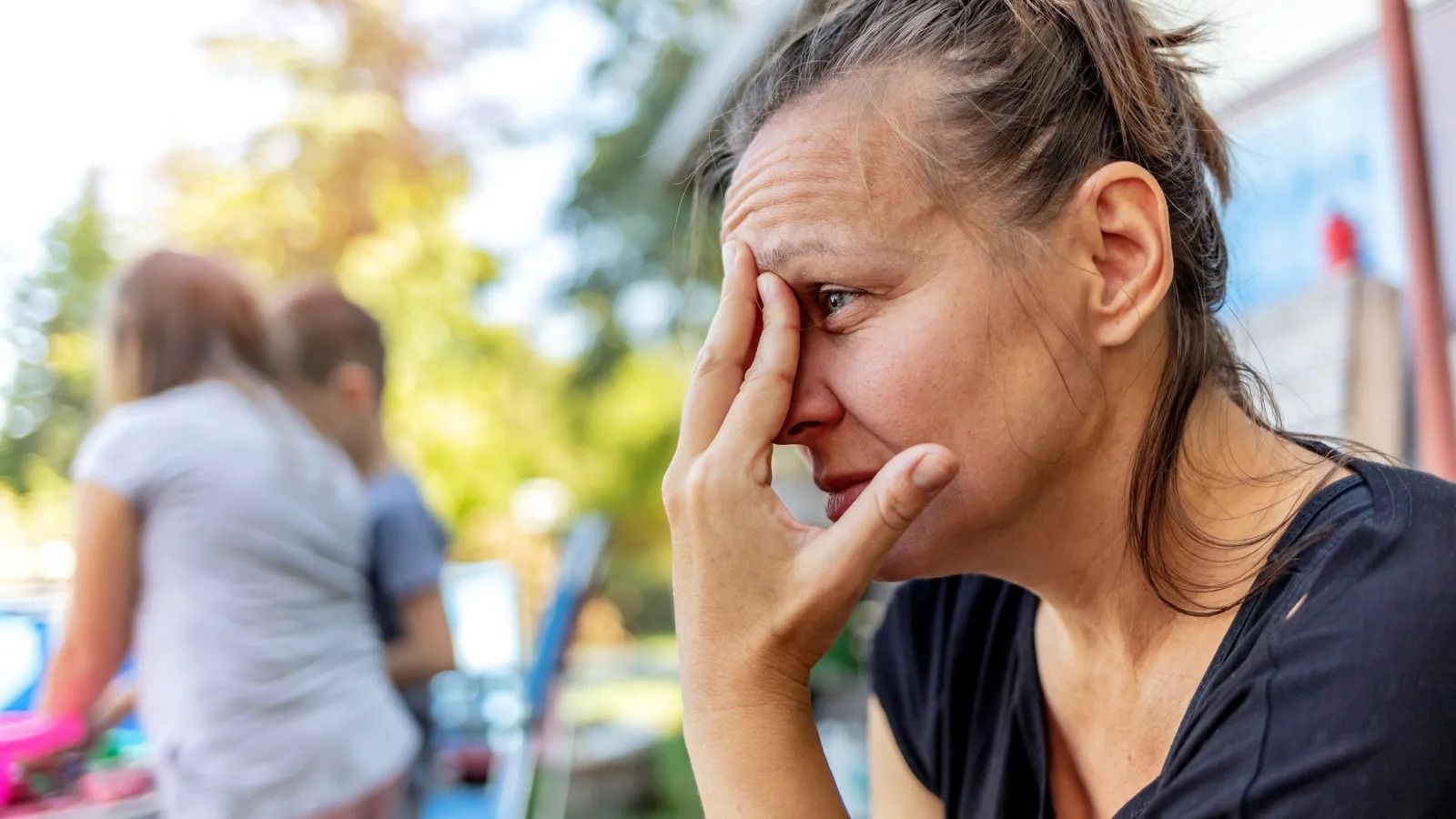Hong Kong News

Catastrophising: How toxic thinking leads you down dark paths
Imagine you’ve applied for a dream job, and you have now been selected for the second round of interviews. Do you celebrate your progress so far, and start preparing for the new challenge? Or do you immediately start visualising a rejection, agonising over what it will do to your self-esteem? “If I flunk this, I’m a total failure,” you tell yourself.
Or perhaps you’re waiting for a reply to a message to a friend. When you don’t receive an immediate response, you start imagining all the ways you might have offended the person – without even considering the possibility that they are just occupied with some other task.
Maybe it’s geopolitical events that concern you. You spend hours, every night, ruminating on the threat of nuclear war, the emergence of another deadly virus or the likelihood of an economic recession. The devastation it could cause for you and your loved ones keeps playing out in your mind’s eye.
If any of these situations feel familiar, then you might be susceptible to catastrophising: a mental habit in which you overestimate the chances of something bad happening, and exaggerate the potential negative consequences of that scenario.
“It’s a negatively skewed way of thinking, which elevates the intensity of emotions to levels that are hard to manage, and in some cases they are overwhelming,” explains Dr Patrick Keelan, a psychologist and certified therapist in Alberta, Canada.
Abundant research shows catastrophising can pose a serious threat to mental health, and may also amplify feelings of distress accompanying conditions such as chronic pain. Catastrophising can occur at any point in our lives – but the lingering fears of Covid-19, combined with the pressing political and economic uncertainty, could certainly exacerbate the tendency.
Finding ways to break those toxic thinking cycles should therefore bolster anyone’s resilience – and there may be no better time to learn.
Free from Freud
Psychologists’ understanding of catastrophising as a serious risk factor for mental illness stems from the birth of Cognitive Behavioural Therapy.
For the first half of the 20th Century, psychoanalysis – developed by Sigmund Freud and others – had been the primary means of tackling mental illness. The aim was to uncover suppressed fears and desires – often resulting from events in early childhood, and sexual in nature – that created psychological conflict.
Continued research shows that catastrophic thinking is a serious contributor to many other anxiety disorders.
By the middle of the century, however, psychotherapists such as Albert Ellis and Aaron Beck had started to look for alternative ways of guiding people through their distress. Rather than trying to unearth hidden psychological conflict, they focused on people’s conscious thought processes, by targeting the maladaptive thinking patterns or “cognitive distortions” that could be leading to distress.
Right from the outset, catastrophising was identified as a potentially important cognitive distortion – with Beck writing about its potential role in phobias. Someone with a fear of flying, for example, might interpret a slight rattle in the cabin as a sign of a technical fault. If they were less prone to catastrophising, they might notice that the cabin crew looked unalarmed, but a catastrophiser would assume that the staff simply weren’t paying attention – and as the unnerving sound continued, they would start imagining the awful ways they might die.
Continued research shows that catastrophic thinking is a serious contributor to many other anxiety disorders. At work, for instance, a perfectionist with catastrophising tendencies might agonise over the smallest mistake. “They might engage in catastrophic thinking such as ‘I’m going to get fired’ and ‘If I get fired, I won’t be able to handle it’,” explains Keelan. At some point, the person’s fears may reach a point where they are simply no longer able to function in their role. For someone with health anxiety, meanwhile, catastrophising may lead someone to self-diagnose any slight change in their body as a sign of cancer.
In some cases, people may start to catastrophise the bodily sensations that accompany anxiety. If they are nervous about giving a presentation, for example, they think that their pounding heart is a sign that they are going to have a heart attack. The result is a spiral of negative thinking that can lead to a full-blown panic attack. “The catastrophic misinterpretation of the bodily signals [fuels] anxiety and fear, which then makes it more likely that you’ll interpret the situation catastrophically,” says Barnabas Ohst, a psychotherapist in Freiburg, Germany, and a co-author of a recent meta-analysis examining the role of catastrophic thinking in panic disorder.
Over the past few years, research has shown that catastrophic thinking can render us more vulnerable to many other mental illnesses – including post-traumatic stress disorder and obsessive-compulsive disorder, and even certain kinds of psychoses.
Catastrophic thinking can even exacerbate feelings of physical pain. In this case, the thoughts may concern how long the discomfort is going to last – “it’s never going to go away” – or its cause. You might assume that a terrible headache means you have brain cancer, for example. Experiments show this kind of thinking only amplifies pain signalling in the brain, so that the distress is more intense and takes longer to pass. As the pain scientists Beth Darnall, at Stanford University, and Luana Colloca, at the University of Maryland, wrote in a recent paper, this negative mindset is “like picking up the can of gasoline and pouring it on a fire”.
 Catastrophising means imagining all the ways you could flunk a job
interview - and the multiple ways doing so could derail your life
Catastrophising means imagining all the ways you could flunk a job
interview - and the multiple ways doing so could derail your life
Emotional contagion
Many factors can explain why some people experience catastrophic thinking more than others.
Personality traits such as neuroticism – which are partly genetic – may explain some of the differences. We may also have learnt our thinking style from family members. If you always saw your parents considering the worst possible outcome of any event, you may naturally view any difficult situation through the same lens. Our current context will also play a role. High baseline feelings of stress and insecurity will mean that much smaller triggers could tip you into that spiral of negative thinking.
If you have found that your own thoughts have started to take a downward turn in the last year or two, this may not be a coincidence: there is some evidence that world news events may exacerbate our catastrophising.
Sometimes, you may catastrophise about the events themselves – such as the war in Ukraine, the emergence of another Covid-19 variant, or the collapse of the economy. At other times, the link may be less obvious, with the doom and gloom of the news cycle adding a general level of anxiety that leads you to worry more about your personal problems – even if they seem completely divorced from geopolitics.
One study, from the University of Sussex, UK, asked independent judges to rate various TV news items for their emotional qualities – whether they were positive or negative, pleasant or unpleasant, calm or exciting – and then showed a selection of these clips to a group of 30 participants.
Before and after they watched the clips, these participants completed questionnaires about their top three worries in their lives, and at the very end, they also took part in an interview, discussing one of their personal preoccupations. As expected, the participants who had watched the negative news items were considerably more anxious at the end of the clip, and – crucially – were more likely to show catastrophic thinking when discussing their personal problems, compared with those who had seen neutral or positive films.
This was a relatively small study. But further experiments confirm that news consumption has a lingering influence on our mood, which could, in turn, send our thinking down a darker path.
 Anyone can fall victim to catastrophising, and some research suggests world news events can exacerbate this tendency
Anyone can fall victim to catastrophising, and some research suggests world news events can exacerbate this tendency
Breaking the cycle
Whatever the source of your catastrophising, cognitive behavioural therapists like Keelan say that it is possible to break the negative thought cycles.
Awareness is essential, so the first step should be to pause your thinking and recognise when your mind is going down a psychological black hole. You might notice that you are feeling anxious about an interview, for example. If your next thought is “I’m going to flunk it”, however, you could question the basis for this automatic assumption. What reasons do you have to think you will automatically fail? And how else might you be able to interpret the situation based on the evidence at hand?
If you try to take the viewpoint of an objective observer, you could recognise that failure is a possibility, rather than a certainty – and that there are proactive steps you could take to improve your chances of performing at your best.
You should be particularly conscious of unhelpful generalisations and over-exaggeration – thoughts like “I’m a failure and I’ll never get a job”. In this scenario, you might try to consider the fact that everyone has bad interviews occasionally – it does not mean they are all hopeless failures. And should you fail, you can learn from this experience to improve your performance in the next one.
To consider another example, imagine that you have serious anxiety about catching Covid-19, which is now occupying all your waking thoughts. While it is rational to recognise the risk of infection, you may quickly jump to the conclusion that you are infected whenever you feel a slight tickle in your throat, and then start panicking about your ability to cope if you do get ill.
In such cases, you can encourage yourself to suspend judgement until you develop symptoms – that slight tickle in your throat may just be a false alarm. You could also remind yourself that your vaccination will significantly reduce the risk of severe symptoms, and think about the ways you might ease your recovery, if you do get sick – by calling on a friend to do your shopping while you are ill, for example.
The aim, in each case, is to develop a more balanced view of the situation based on the evidence at hand. “Using these tools regularly typically results in the person reducing the intensity of their anxiety to manageable levels compared with the levels based on catastrophic thinking,” says Keelan.
Unpicking your thoughts in this way may be hard initially, but it should get easier with practice. You could start keeping a tally of how often you have been ready to jump to the worst conclusion, when the ultimate outcome turned out to be far brighter than you had started to imagine. In this way, you’ll see just how often catastrophising had been creating unnecessary worries. Remembering this fact could provide further reassurance the next time that you feel tempted to descend into doom-filled thoughts.
None of this requires mindless Pollyanna-ish optimism – but a simple recognition of all the possible outcomes. Disaster is not necessarily sitting around every corner.











